10 Must-Read Books By Indian Women Authors
Brilliant women-centric fiction you don’t want miss

Books
10 Must-Read Books By Indian Women Authors
Brilliant women-centric fiction you don’t want miss
When it comes to Indian women writing in English, there is a wealth of unexplored treasures out there in the world. Often, we hear readers complaining that books written by Indian authors are not women-centric enough, but once you go through the recommendations in this list, I am sure your opinion would change. These are some hand-picked book recommendations by Indian women authors that every reader would be able to appreciate. The books are listed in no particular order.
1. The God Of Small Things by Arundhati Roy
Genre: Domestic Fiction
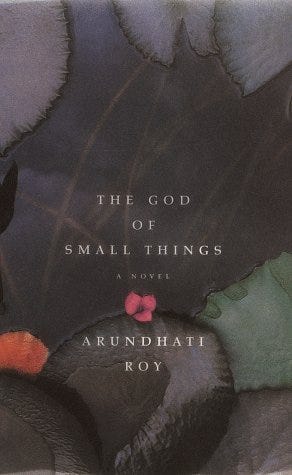
An idyllic village where nothing really happens. A divorcee still blamed by her family as if whatever happened to her was her fault. A boy-girl pair of dizygotic twins who have shared their entire lives while growing up and are fated to share much more than anything they could have imagined. A secret relationship forbidden by the rules of the society that dictate whom to love and how. And how much.
Roy’s debut novel that went on to win the Man Booker Prize in 1997 is a must-read for any lover of literature. The characters are so well-crafted and the writing is so beautiful, it will almost feel as if Roy has disguised poetry as prose. You can read it like a social commentary on the caste-based discrimination prevalent in India, or you can read it like a heartfelt love story. Either way, this is going to end up as one of the best books you have ever read.
2. The Inheritance Of Loss by Kiran Desai
Genre: Psychological Fiction
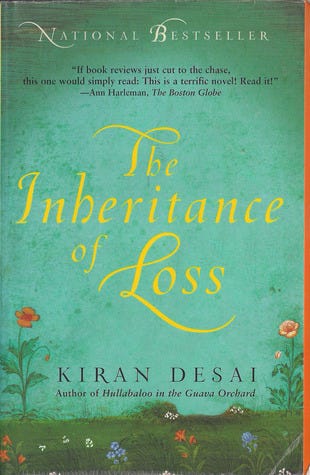
Winner of the Man Booker Prize in 2006, Desai’s The Inheritance of Loss is a story of the consequences of colonialism as it collides with the modern world. Set in Kalimpong in West Bengal, the book is populated with flawed, relatable characters struggling with the loss of identity of a nation as wide and varied as India because of western influences. It is almost as if the town of Kamlimpong is a character with its own flaws and its ever-changing landscape. Easy to read, and yet, deep enough to tug at your heart-strings, this novel is full of small stories that tie the narrative together. Here is my favourite quote from the book:
The present changes the past. Looking back you do not find what you left behind.
3. Neti, Neti by Anjum Hassan
Genre: Literary Fiction
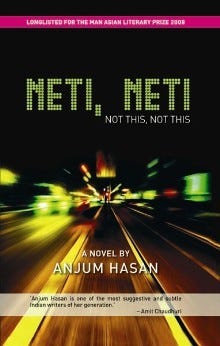
When I picked up Neti, Neti from the shelves of my college library, I had expected a “typical” novel following the life of a troubled urban youth living in Bangalore. What I hadn’t expected was for the book to hit me right in the face and leave me in tears. Just a few paragraphs in, and I was sitting straight in my chair, hooked, drawing my friend’s attention every few pages to show him an interesting line, something I could relate to. I definitely hadn’t expected it to become one of the best books I had ever read.
Neti, Neti was longlisted for the 2008 Man Asian Literary Prize and shortlisted for The Hindu Best Fiction Award in 2010. It is a book written straight from the author’s heart. The protagonist, Sophie Das, is a girl from the undulating green meadows of Shillong trying to find a place for herself in the crowded neighbourhoods of Bangalore. She constantly struggles with the feeling of not belonging anywhere — an emotion many people of this generation can relate to. Hassan’s words will speak to the bohemian in you and rip your heart out. The ending is so bittersweet, that you will be left with a smile on your face when you are done.
4. Legends Of Pensam by Mamang Dai
Genre: Fiction/Short Stories
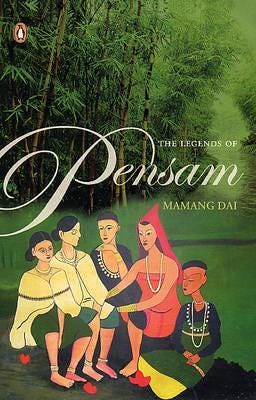
Mamang Dai is a poetess and writer from Arunachal Pradesh — the eastern-most state of India. The literal meaning of the place is “the land of the rising run”. Through her collection of short stories in Legends of Pensam, one can feel the beauty of the snow-capped mountains of Arunachal Pradesh. The book has a distinct dreamy vibe that draws you in and leaves you wondering. Pensam is a Tibetan word for “in-between”, and this vibe is apparent in her stories — which are all different, yet feel like they are somehow connected to each other.
There is a touch of folk-lore in the stories too, as Dai talks about river and forest spirits — stories she must have grown up listening to. The hardships of the people living in a remote area with very little touch with the outside world are brought out with empathy. Read this book, for more than simply an anthology, it is like an intricate web of stories, images, customs and idiosyncrasies of the Adi tribe of Arunachal Pradesh.
5. The Palace Of Illusions by Chitra Banerjee Divakaruni
Genre: Mythological Retelling
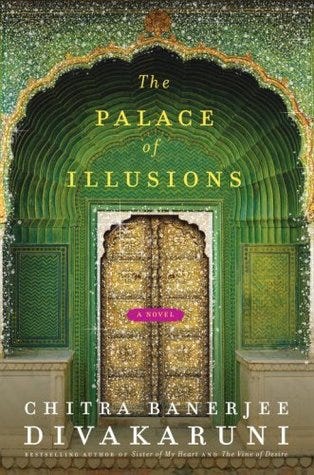
This brilliant book is a reimagining of the world-famous Indian epic, the Mahabharata — told from the point of view of an amazing woman — Panchaali.
Many Indians and mythology-enthusiasts might already be aware of the events that unfolded during the Mahabharata, but this book takes us through those times through the eyes of the woman who started it all. The author has brilliantly woven her storytelling with divine and supernatural events in the form of Draupadi’s dreams and the court songs sung by bards. The feminist tinge throughout the book throws light on the challenges women have faced since centuries by virtue of their birth. The book would definitely be an entertaining read with its colourful scenes and also play a part in sensitizing men to the pain women used to face in medieval times and continue to face today.
The quotable quotes would make a reader want to keep coming back to the pages to discover another bunch of hidden gems at each re-read. After all, how can one not fall in love with a female protagonist who claims power for herself and quotes —“I am buoyant and expansive and uncontainable — but I always was so, only I never knew it!”?
6. The Lowland by Jhumpa Lahiri
Genre: Literary Fiction/Social Commentary
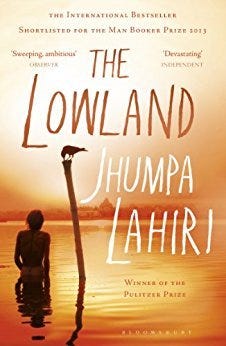
A beautifully-written book tracing the lives of two brothers — Subash and Udayan — as they find their way through life. One moves out of the country and settles into a life of luxury as an academician, while the other is drawn to the Naxalite movement (a rebellion waged to eradicate inequity and poverty) brewing in the villages and forests of then-Calcutta. The brothers, though quite close while growing up, slowly fall apart as their priorities in life change, but it is almost ironical that the universe makes them fall in love with the same woman, Gauri.
The tone of the book changes as we get Gauri’s perspective and all the aches buried deep in her soul. As a reader, one can understand when she might be making a mistake, but in a weird way, can also emphasize with her — that is how well her character is written. What happens next is heart-wrenching and yet, something that could have happened to just about anyone. Lahiri’s intelligence shines through her brilliant writing and makes it apparent why this book won the NAIBA Book of the Year award for Fiction in 2014.
7. The Ministry Of Utmost Happiness by Arundhati Roy
Genre: Literary Fiction
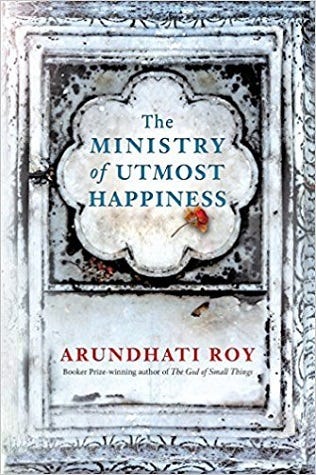
I apologize for letting Arundhati Roy appear twice in the list, but believe me when I say, her writing is an absolute delight to read. I took time in reading this book, but every second spent was worth the investment.
This is a beautiful story. Roy is a master is what she does — crafting characters of such intricate depth, that you cannot help but fall in love with their imperfections, their beliefs, the mistakes they commit, and the way they see the world.
This book belongs to the characters who will leave their marks on your heart. But more than that, this book belongs to you, the reader — who will be taken on a journey through the crowded, colourful streets of old Delhi, to the quiet dissatisfaction brewing in the lawns of Jantar Mantar, to the blood-drenched valleys of Kashmir, to the place where old birds go to die, and finally to a home where things might just have a happy ending.
This book will leave you a changed person. I know. I have experienced the magic.
8. Lifting The Veil by Ismat Chughtai
Genre: Humour/Coming-of-age/Anthology

One might imagine a Muslim female writer in 2001 might be tied down by prejudices, patriarchy and zealotry. But Ismat Chughtai breaks free of all the social barriers and lets her prose soar free. The courage and honesty in her writing shine through. Here, I would like to mention her short story “The Quilt” which is a delicate exploration of female homosexuality and the suffocation of women by cultural norms. Another story, “The Homemaker” stands out because of the bold female protagonist who has been raised on the streets and has learned the art of survival the hard way. She has no qualms about trading sex for moving ahead in life and uses the way men objectify her to her own advantage. It is refreshing to read about such empowered female characters thriving in a world that tries to pull them down at each step.
The re-read value of this book is high and Chugtai’s prose only gets better each time one visits it. All the short stories curated in this book are deeply thought-provoking and will definitely stay with the reader long after the last page is turned.
9. All The Lives We Never Lived by Anuradha Roy
Genre: Historical Fiction
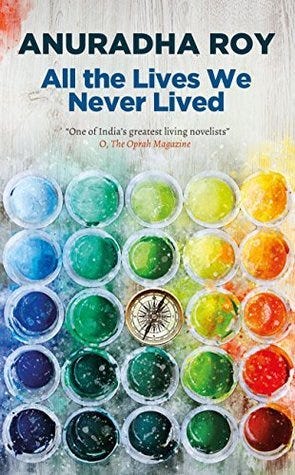
A powerful book by one of the best contemporary female writers of India, this is a tale celebrating womanhood and embracing its myriad shades — motherhood, rejection, grief, and above all, the importance of freedom. Set in Bali in the pre-World War era, this is the story of Gayatri, her “hobbies” of singing, painting, and dancing, and how she balances them all with her family life.
For people who always question why a male author cannot create a “perfect” female character, this book might just be the perfect answer. Male authors might indeed write relatable female characters, but you can tell what is missing by Roy’s masterful depiction of womanhood in all its glory. The intricate details of the characters, their back-stories, how their emotions influence their decisions, and how these translate to actions that play out in the historical background is fascinating to read and reflect on. The author knows how to take her readers on an enriching, enlightening journey.
10. The Twentieth Wife by Indu Sundaresan
Genre: Period Drama/Biographical Fiction
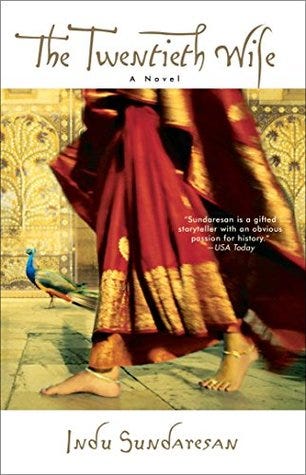
Set in the Mughal empire of the 1500s, the author’s debut novel is an epic tale of royal romance, tradition, history and struggle for control of the throne. What makes this book stand out is that the story is fictional, but the characters and places are real. The depiction of the struggles of Mehrunnisa, the daughter of starving refugees who goes on to become the empress of the mighty Mughal empire is inspiring and magical. The slowly-blooming romance between Mehrunnisa (a.k.a Empress Nur Jahan) and the Emperor Jahangir (who ultimately goes on to build the iconic Taj Mahal for her) is portrayed with a lot of empathy.
This book will take the reader back to the grandeur of those days, make them want to visit the palaces and see for themselves how such breath-taking beauty can exist. It will show how the world functioned in those times — the culture, the traditions, the beliefs, and superstition — everything is woven intricately with the story.
11. (Bonus) Stolen Reflections by Anangsha Alammyan
Genre: Poetry
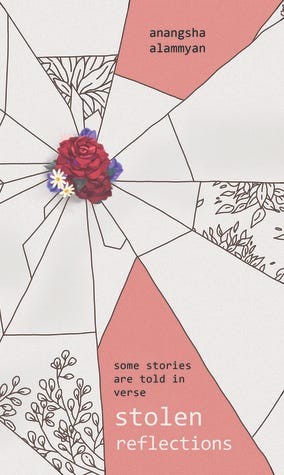
A book of poems spanning 15 different traditional poetry forms (like the Haiku, tanka, Limerick, Palindrome, etc.) as well as the modern free verse. Stolen Reflections: Some Stories Are Told In Verse is the author’s debut book and tells the story of love, heartbreak, and healing from the eyes of a modern young woman. There are 100 poems bringing out several emotions, each dripping with the ethereal beauty of Assam — the land of red rivers and blue hills where the author grew up. The book has been praised for the raw honesty of the writing and the unabashed femininity of the poems.
If you enjoyed my recommendations, you might like these articles too-

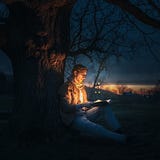

For more book reviews, follow me on Goodreads.
